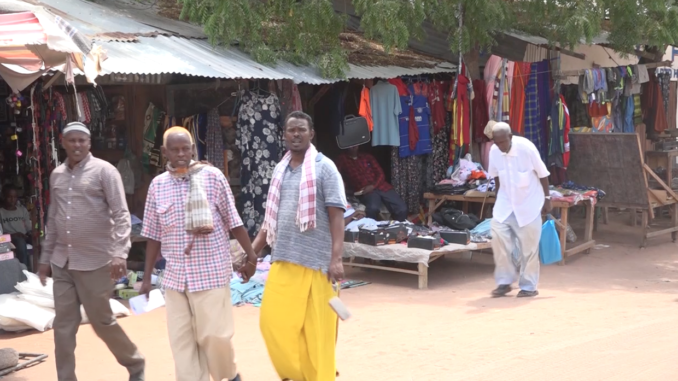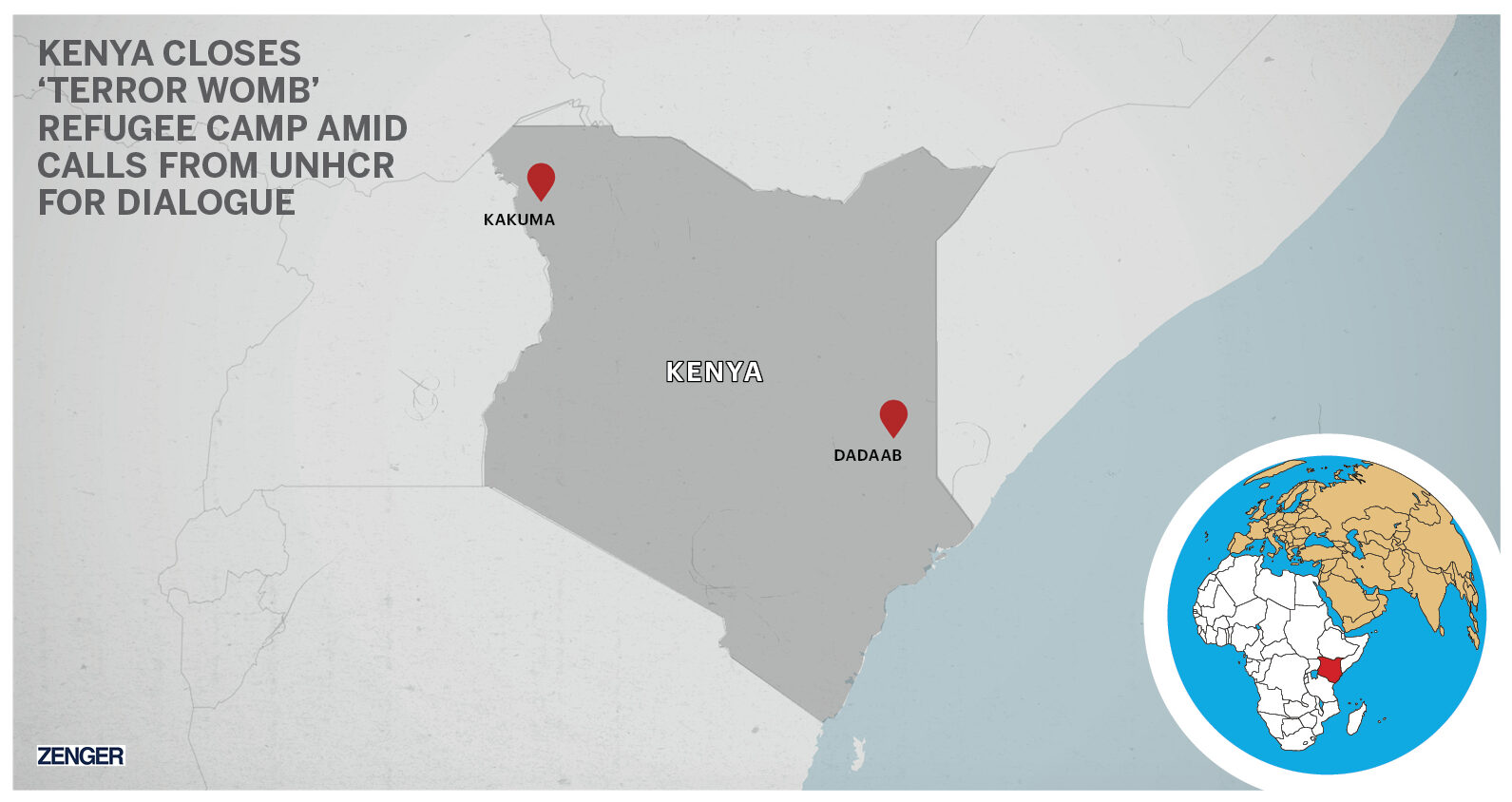
NAIROBI, Kenya — The clock is ticking on an ultimatum by the Kenyan government that the UN Refugee Agency close the sprawling Kakuma and Dadaab camps, citing concerns about terrorism.
In a March 24 tweet, Kenya’s Ministry of Interior issued a 14-day ultimatum to the United Nations High Commission for Refugees to plan for the closure of the largest refugee camps in Africa. The government contends the camps provide breeding grounds for terrorists linked to Al-Shabaab, a fundamentalist group based in East Africa and Yemen.
The government also said in a statement from the Ministry of Interior that it is not ready for dialogue with the UN Refugee Agency over extending the length of stay for refugees, most of whom are from war-torn Somalia.
‘’UNHCR is concerned about the impact this decision would have on the protection of refugees in Kenya, including in the context of the ongoing COVID-19 pandemic. We will continue our dialogue with the Kenyan authorities on this issue,’’ the agency said in a statement issued on March 24.
“We urge the government of Kenya to ensure that any decisions allow for suitable and sustainable solutions to be found, and that those who continue to need protection are able to receive it,” the statement said.

The government has made several attempts to close the two refugee camps on grounds they are being used by Al-Shabaab-linked terrorists, who have carried out more than 100 attacks in Kenya since 2011. Security officials claim most of the attacks were planned in the Dadaab refugee camp near Kenya’s border with Somalia in the northeast town of Garissa.
The camp, which is the second-largest in the country after Kakuma, houses more than 200,000 Somali refugees who fled war, drought and hunger.

Al-Shabaab militants have recently claimed responsibility for several terror attacks, including one in 2015 that killed 148 students at Garissa University, 62 miles south of the Dadaab refugee camp.
Justice John Mativo at the Milimani Law Courts in 2017 quashed an order by the government of Kenya for the closure of the Kakuma camp. The judge said the order was an abuse of office and a violation of human rights.
Security experts in the Horn of Africa have called the efforts to close the camps a means of settling diplomatic feuds between the two border countries.

Kenya has been in a maritime dispute with Somalia over an oil- and gas-rich section in the Indian Ocean. The matter was brought to the International Court of Justice after dialogue failed. However, Kenya pulled out of the case just days before it issued its notice last week to the UN agency.
‘’It is a diplomatic issue and not just a matter to do with terrorism,” said George Musamali, a regional security expert in the Horn of Africa. “Somalia has accused Kenya several times of meddling with its affairs. Kenya, on the other side, has accused Somalia of being ungrateful for supporting its citizens.’’

Repatriation means death
Abdulahi Ali, who has been in a refugee camp for more than two decades, sees repatriation as an execution.
‘’Taking us back to Somalia at this time, when there is no peace, is like taking us to death; it is not different with an execution. They want to kill us.’’
In November 2020, Mogadishu recalled its ambassador to Kenya and kicked out the Kenyan ambassador to Somalia on grounds that Kenya was meddling with the now-delayed Somalia elections.

Analysts say these are some of the issues that have promoted Kenya to act in retaliation.
‘’Funding from UNHCR is just one of the issues forcing Kenya to act, but that is not the entire issue,” said Collins Agwenyu, a Nairobi-based lawyer and a Horn of Africa regional affairs expert. “Since Kenyan troops went to Somalia under the African Union Mission in Somalia in 2011, the relations between Nairobi and Mogadishu have been fragile.’’
Kenya hosts more than half a million refugees and asylum seekers from neighboring countries. Somali refugees make up 85 percent of the total number of refugees, with most of them hosted at the Kakuma and Dadaab camps.
(Edited by Judith Isacoff and Fern Siegel, Visuals produced by Claire Swift, Jorge Diaz and Allison Itz)
The post Time Is Running Out On Kenya’s Ultimatum To Close Africa’s 2 Largest Refugee Camps appeared first on Zenger News.
